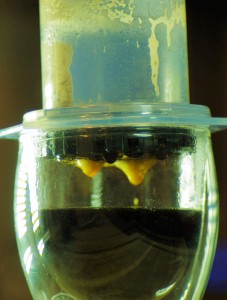I saw several signs this morning: “Free Coffee in honor of National Coffee Day”. Instead of looking for a free cup of coffee today, I suggest you go the other way: Try a coffee a notch above what you usually purchase. You might be surprised by its taste, its aroma. If you like cream and sugar, go ahead. It should still taste better yet. 
My thinking is this: The average coffee farmer lives hand-to-mouth, paycheck to paycheck. Actually, since more than half the world’s coffee is grown by small family farms, there really aren’t paychecks. There are no holidays, no sick days. The family works the farm every day. The farmer usually grows multiple crops. The coffee is a paycheck once it’s delivered.
It’s a tough business model. I doubt there are any hotel seminars in coffee growing countries teaching how to break into the profitable coffee growing business. The average coffee grower’s age is near 60. It is physical work. You and I might think of sustainability in terms of our wish to be able to obtain quality coffees in twenty years; the middle class “will our children know what a true Ethiopian Harar tastes like?” kind of concern. Whenever I’ve asked farmers what sustainability means to them, they wonder if they’ll be growing coffee next year. Period. No romance about keeping an heirloom coffee going for posterity. Most of the world is still stuck in survival mode.
All that free coffee being pedaled today is the lowest-quality coffee. It’s only a bargain because those who create it are not getting paid a fair wage. Since I know better than to preach morality, I’ll preach self-interest instead. If you taste a great coffee today, won’t you want it tomorrow? The coffees I’m talking about are more likely to be available because someone made money, their bills were paid and they will grow more next year.
Even if I’m just thinking of myself, I want to taste the best every year I have left on this planet. Speaking of sustainability, it goes further than growers. The folks who roast and then brew it in your local coffee hangout work for their wage, too. As someone who regularly pitches buying exhibit space at my traveling CoffeeCon event, I think they’re also facing sustainability issues. Most of them are following the 80/20 rule — 80% artist and 20% business, and they literally go into the red to get the top coffees you and I enjoy so much. Maybe toss an extra dollar in the tip jar to help keep the barista sustainable as well.
So, my advice: Splurge in honor of National Coffee Day. Give yourself one you’ll truly remember.


Thanks for this thoughtful post. With problems like coffee rust plaguing crops in Central America, and the borer beetle in South Kona, coffee farming is more labor intensive than ever. Since coffee isn’t even a staple food crop that farmers can survive on in tough times, it’s even more important that growers have financial incentives to keep producing.